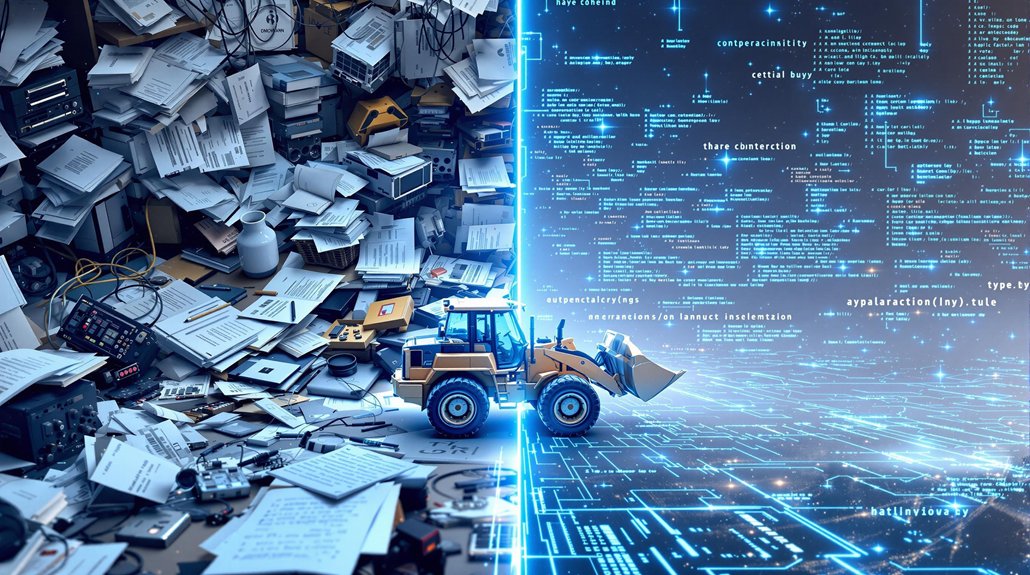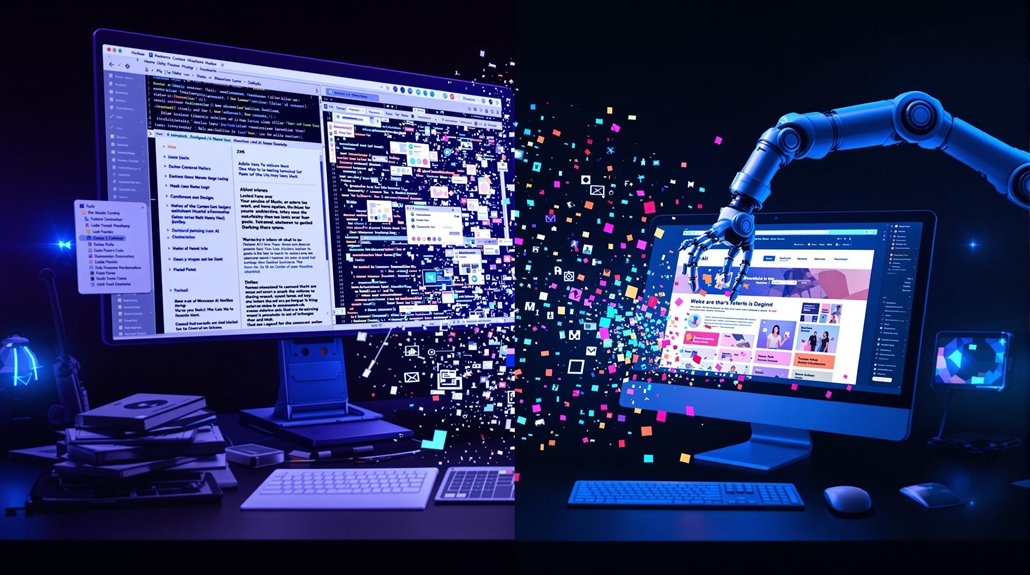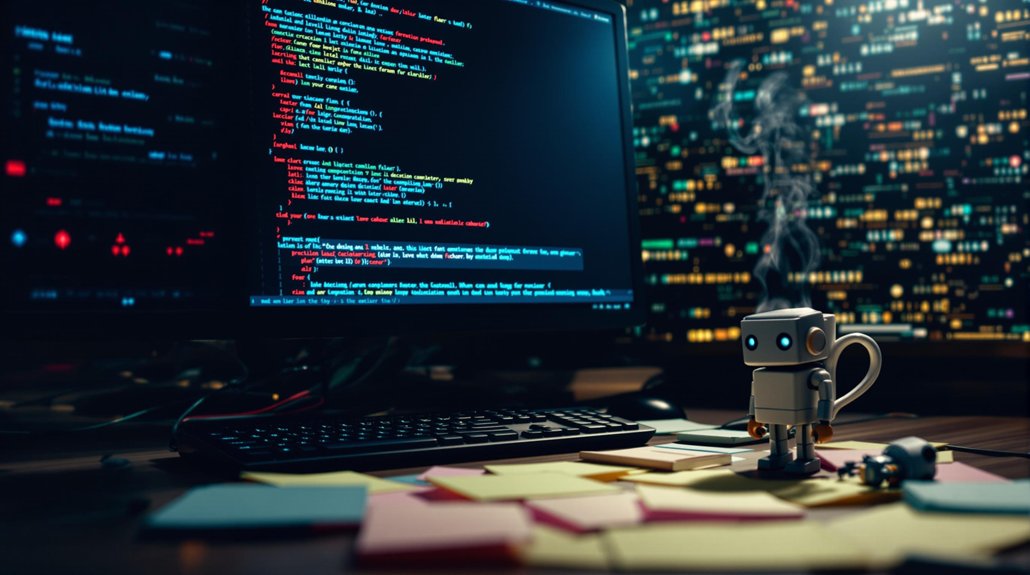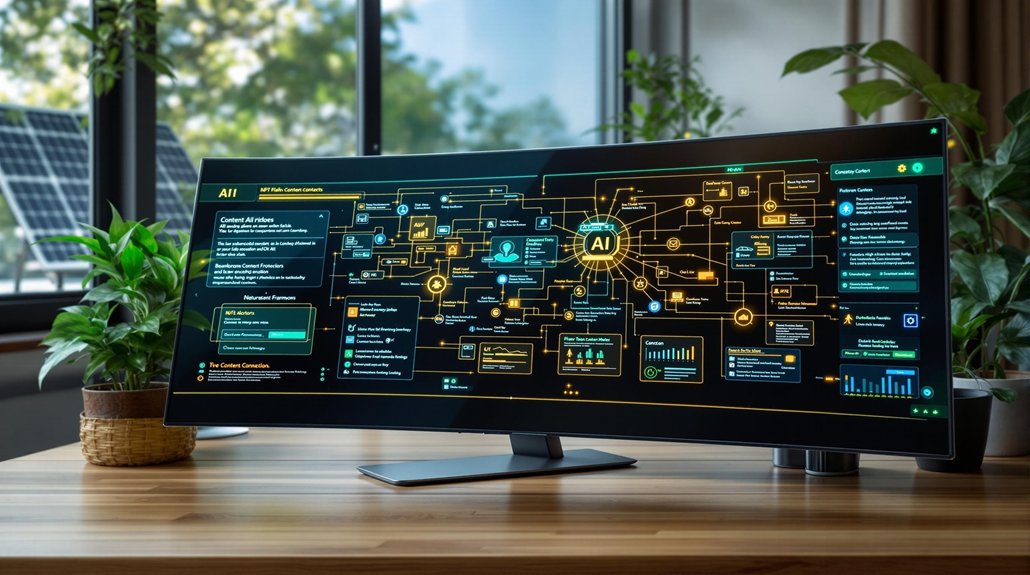AI is transforming software engineering across multiple fronts. Tools like GitHub Copilot generate code blocks while machine learning algorithms detect bugs and optimize testing. AI systems now review code for issues, extract requirements from plain language, and forecast project timelines. These advancements reduce repetitive tasks and improve overall code quality. Human oversight remains necessary, but traditional programming practices are rapidly evolving as AI takes on increasingly complex development responsibilities.
As artificial intelligence continues to transform industries worldwide, it’s making significant inroads into software engineering. Developers now rely on AI-powered tools like GitHub Copilot that can generate entire code blocks and functions. These tools provide autocomplete suggestions that speed up the coding process and reduce time spent on repetitive tasks. While the accuracy of AI-generated code is improving, human oversight remains necessary to guarantee quality.
AI is also changing how software testing works. Machine learning algorithms can now detect bugs and predict areas prone to errors. These tools generate test cases automatically and perform continuous integration testing. This reduces manual quality assurance work while improving software reliability. Companies using these tools report finding bugs earlier in the development cycle. Similar to AI chatbots, these systems use Natural Language Processing to analyze context and understand developer intent.
Code review, traditionally a human-intensive process, is getting an AI upgrade. New tools analyze code for style issues, performance problems, and security vulnerabilities. They suggest optimizations and identify “code smells” that could cause problems later. This helps teams maintain coding standards across large projects and improves overall code quality.
Natural language processing is transforming requirements engineering. AI systems can extract key information from specifications written in plain English. They convert user stories into formal requirements and flag ambiguities or inconsistencies. This improves communication between business stakeholders and technical teams. Unlike traditional methods, AI can adapt to changing requirements without the rigid structure limitations that plague sequential development approaches.
Project management benefits from AI’s predictive capabilities. Systems analyze historical project data to forecast timelines and resource needs. They can identify potential bottlenecks and optimize task allocation based on developer skills. Project managers use these insights to make better decisions about team assignments and deadlines.
In DevOps, AI automates infrastructure provisioning and predicts system failures before they happen. It optimizes resource allocation and enhances monitoring systems. As these tools evolve, they’re addressing ethical concerns too. Modern AI systems help detect bias in algorithms and guarantee compliance with regulations, making software development faster and more responsible. The integration of predictive maintenance capabilities alerts engineers to potential system issues before they cause significant problems.









